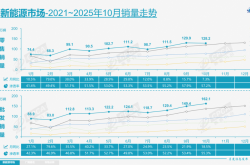Qifu Technology's 'AI Makeover': Is It Just a Tech Facade for Aggressive Debt Collection and High Interest Rates?
![]() 11/14 2025
11/14 2025
![]() 533
533
After transitioning from 360 Digitech to Qifu Technology, the company has swiftly advanced its strategic deployment of artificial intelligence technologies within the financial sector.
Wu Haisheng, the CEO of Qifu Technology, once remarked, "Fintech represents one of the prime arenas for AI implementation. Artificial intelligence is propelling the entire industry from a 'rule-bound' paradigm to one of 'multimodal reasoning'." Similarly, at the Yunqi Conference, Fei Haojun, Qifu Technology's Chief Algorithm Scientist, advocated for financial large models to be "smaller yet more powerful", steering the industry away from the traditional model of "stacking manpower and models" towards a value-driven upgrade path of "aggregating intelligence and personalizing services".
However, following its brand refresh and the establishment of its "AI + Finance" strategic direction, Qifu Technology's future vision gradually unveils a distinct yet paradoxical "duality": On one hand, there's the envisioned efficiency gains brought by AI technologies in core areas like risk control; on the other hand, there's the tangible impact of eroding user trust on its business foundation.
Achieving equilibrium between these two facets will directly determine whether its technological narrative can translate into sustainable growth.
Aggressive Debt Collection and High-Interest Rate Controversies
Amidst a complex market environment, Qifu Technology has still managed to deliver a mid-term performance report showcasing growth in both revenue and profit.
Financial report data reveals that Qifu Technology's operating profit for the first half of 2025 stood at RMB 4.11 billion, up from RMB 3.349 billion in the same period last year. Net profit reached RMB 3.527 billion, a 39% increase from RMB 2.537 billion in the corresponding period last year. In the second quarter of 2025, revenue was RMB 5.216 billion, a 25% year-on-year increase, with non-GAAP net profit hitting RMB 1.85 billion.
Yet, in stark contrast to these impressive figures, user complaints have surged, and negative controversies continue to escalate.
According to statistics from the Heimao Complaints Platform, as of November 2025, there have been a total of 50,181 complaints regarding Qifu Jietiao (formerly '360 Jietiao'), with 1,248 new complaints in a single month. The complaints primarily revolve around issues such as aggressive debt collection, malicious harassment, and privacy breaches.
Firstly, aggressive debt collection has become widespread, leading to a deterioration in user experience. Many users report receiving "relentless" phone calls after just 1-2 days of overdue payments, with friends, colleagues, and even workplace supervisors frequently receiving collection calls, seriously infringing on personal privacy and psychological well-being.
A user complained on the Heimao platform: "I took out a loan from 360 Jietiao on March 9, 2025, and am currently overdue. Shortly after, 360 Jietiao engaged in violent and intimidating collection tactics, contacting third parties and harassing them even though they could reach me directly. I demand a reasonable explanation and an apology from 360 Jietiao."
Secondly, controversies over high interest rates persist, with hidden compliance risks. Multiple users have pointed out that their loan contracts contain various hidden fees, such as "guarantee fees" and "management fees," resulting in extremely high actual comprehensive annualized interest rates.
A user complained on the Heimao platform: "I borrowed RMB 10,000 through the 360 Jietiao platform on January 2, 2025. After calculation, the comprehensive annualized interest rate for this loan reached 37.8% (including guarantee fees), far exceeding the 24% judicial protection cap set by the Supreme People's Court, suggesting illegal usury."
Interestingly, Zhou Hongyi, the founder of 360 Group, has publicly attempted to distance himself from Qifu Technology. During a livestream, when asked by a passerby, "Can I not repay the money owed to 360 Jietiao?" Zhou quickly responded, "That's not my company." This statement continued to stir public opinion, further weakening user trust in the brand's sense of responsibility.
In summary, while Qifu Technology has demonstrated robust profitability at the financial report level, its operational model, which relies on high interest rates and aggressive debt collection, is accumulating legal and reputational risks.
The New Narrative of 'AI-Driven'
To reshape its brand image and expand growth opportunities, Qifu Technology is fully committed to developing its proprietary large models, attempting to comprehensively reconstruct financial business processes with AI, and presenting a complete "AI-driven" story to the capital markets.
Qifu Technology's AI strategy is not just empty talk. Leveraging its proprietary super-intelligent agents, it delves deep into the "capillaries" of financial business, aiming to enhance risk control accuracy, optimize operational efficiency, and deliver personalized services, ultimately achieving the dual goals of cost reduction and customer acquisition.
Firstly, the AI Approval Officer. Focusing on process automation, it analyzes non-standard information such as invoices, contracts, and dialect recordings to achieve 100% automated review, aiming to eliminate the cumbersome manual document return and supplementation processes in traditional credit, directly linking cost control with user experience optimization.
Secondly, the AI Credit Officer. Focusing on precision marketing, it customizes recommendations for high-intent clients for customer managers at partner banks, upgrading marketing approaches from "mass tactics" to "algorithmic tactics," with the intention of covering a broader customer base from retail to inclusive finance.
Thirdly, the AI Compliance Officer. Emphasizing proactive risk management, it integrates over 2,000 regulatory rules and more than 50 risk control algorithms, shifting compliance management from "post-event remediation" to "pre-event prevention," building differentiated competitiveness in an increasingly stringent regulatory environment.
To support these systems, Qifu has built a substantial technological infrastructure: an end-to-end risk identification system integrates 670 models and 7,129 strategies, improving the core risk control indicator AUC to 64.6% through 22 rounds of reinforcement learning experiments, a 0.6 percentage point optimization from the previous period. Its micro-enterprise intelligent agent knowledge graph has surpassed 2.2 million covered event entities, a 142% year-on-year increase, with accuracy improving to 90.86%.
Despite the grand technological narrative, there remains a noticeable gap between the actual effects and the "revolutionary" breakthroughs anticipated. Moreover, leading fintech companies such as Tencent Financial Technology and JD Technology are also heavily investing in AI R&D. Whether Qifu Technology's AI can develop sufficiently unique and difficult-to-replicate differentiated capabilities remains questionable.
Leading platforms like Tencent Financial Technology and JD Technology are heavily investing in AI R&D and often possess richer ecological scenarios and larger volumes of native data. When all major players are equipped with similar "AI artillery," technology itself evolves from a competitive advantage into a "ticket of entry" for competition.
On July 18, 2025, Tencent Cloud released the world's first international standard for financial risk control large models, IEEE 3410-2025, covering four major dimensions including model construction and data governance, aiming to provide reference and guidance for financial institutions applying AI large model technologies in risk control modeling. It is reported that a rural commercial bank saw a 20% improvement in anti-fraud effectiveness after application, while a commercial bank improved anti-fraud performance by 16%.
Undoubtedly, Qifu Technology is attempting to reshape its image as a tech platform through "de-360-ization" and "AI-ization" to seek higher valuations. However, its profit core remains highly dependent on interest margins and service fees from credit business. Whether the market will accept this reshaped "tech" identity remains uncertain.
Whether Qifu Technology's narrative of AI transformation can truly translate into long-term value remains to be tested by time.
Pursuing a Healthy and Sustainable Development Path
On one hand, there's the glamorous "AI-driven" tech story that must be told to the capital markets; on the other hand, there's the continuously eroding user trust due to aggressive debt collection and high-interest rate controversies.
Balancing on the tightrope of growth and risk, technology and finance, whether Qifu Technology can find a healthy and sustainable development path has become its primary question to answer.
Firstly, shifting from "technological optimization" to "responsibility reconstruction." Qifu Technology needs to recognize that the true value of AI should not only be reflected in cost reduction and efficiency enhancement but also in building responsible, transparent, and traceable credit processes, deeply embedding "compliance" and "user protection" into algorithmic logic rather than merely as post-event remedies.
Secondly, seeking consensus between profit models and user rights. Qifu Technology's continued reliance on high interest rates and aggressive debt collection for profit is unsustainable. It must proactively adjust its product structure, exploring healthy and transparent service models within the legal interest rate range, even if this means short-term profit pressures. This is the cornerstone of long-term survival.
Thirdly, rebuilding brand trust through sincere communication. Rather than attempting to conceal its financial nature with "tech narratives," it should honestly acknowledge its role as a financial service provider, handle user complaints with a more open and responsible attitude, actively communicate with regulators, and turn each crisis into an opportunity to rebuild trust.
When the tide of user rights protection rises to a level that can affect brand survival, the foundation of the enterprise has already been shaken. For Qifu Technology, the current crisis is a severe warning but also an opportunity for rebirth. While capital markets may buy into the AI story temporarily, the ultimate judgment always lies in the hands of users.








